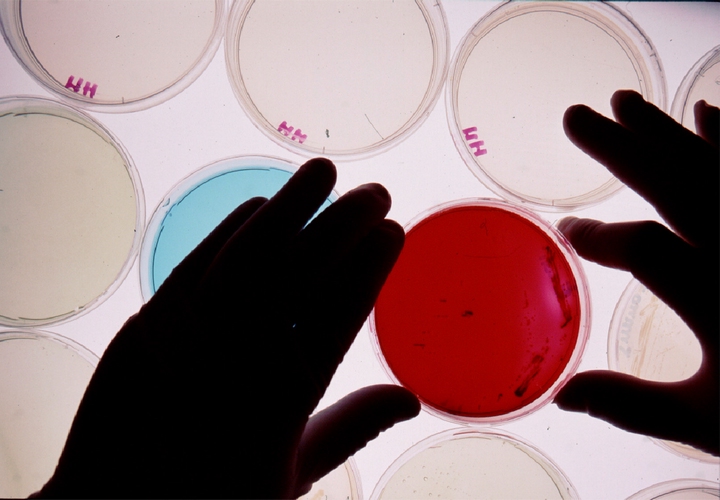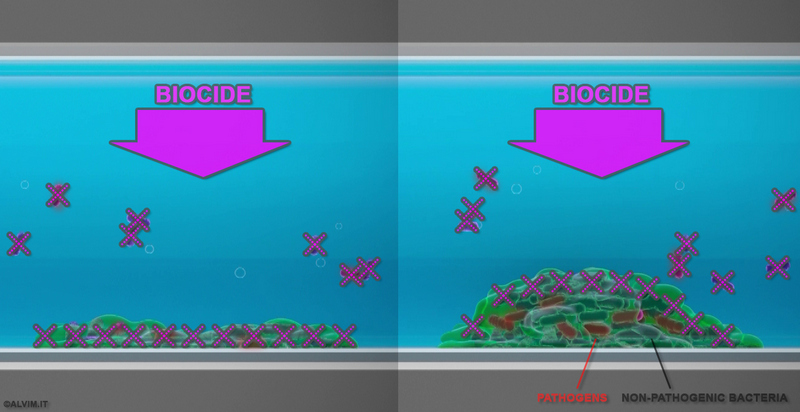The Center for Disease Control (CDC) estimates that, just in the US, each year roughly 1 in 6 Americans (or 48 million people) gets sick, 128,000 are hospitalized, and 3,000 die of foodborne diseases. CDC lists 31 known pathogens, but more than 80% of illnesses are caused by unspecified agents - and you cannott “track” what is not yet identified.
The bacterial slime (biofilm) that forms on any surface in contact with water and other liquids is the ideal environment for the survival and growth of pathogens, like Pseudomonas, Listeria, Staphilococcus and Salmonella. To avoid microbiological contamination of products, Food and Beverage Companies shall apply an accurate Clean-In-Pace (CIP) and sanitation treatment of production lines, as soon as biofilm starts to grow.
HACCP, or the Hazard Analysis Critical Control Point system, is a process control system that identifies where hazards might occur in the food production process and puts into place stringent actions to prevent the hazards from occurring. By strictly monitoring and controlling each step of the process, there is less chance for hazards to occur. HACCP is an integral part of modern food industry used to identify and control major food risks, including the microbiological one (The World Health Organization - WHO).
Without a device able to detect, on line and in real-time, bacterial development since its first phases, it is very hard to effectively prevent the risk linked to pathogens, in food and beverage production plants.
ALVIM Biofilm Probes help to detect bacterial settlement and growth inside water lines, tanks, and other surfaces in contact with the water and other liquids allowing to check, at the same time, the efficacy of CIP, sanitation treatments and water treatments. This bacterial detection technology has been already used, with positive results, for increasing food safety in food production plants, verifying sanitation treatments in mineral water bottling and soft drink production.
For more info, visit the ALVIM Biofilm Sensors page, or Contact us!







